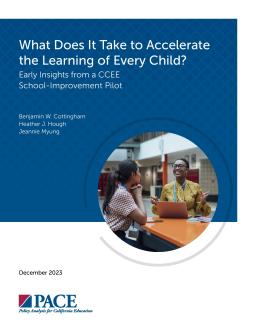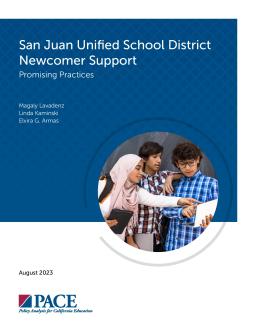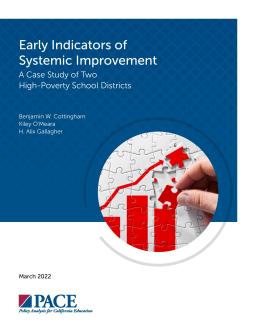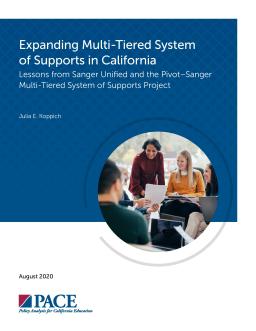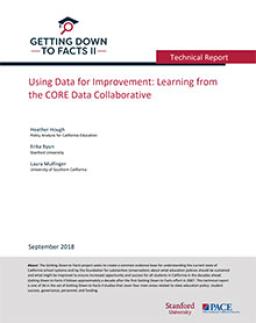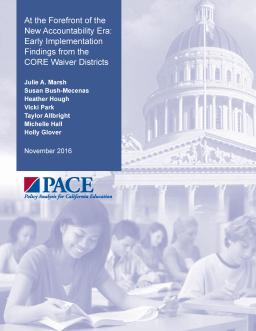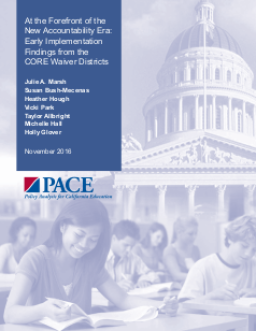Summary
Summary
Summary
Summary
Equity has been a key focus of California education policies, which aim to reduce disparities in learning outcomes. The Multi-Tiered System of Supports (MTSS) can help identify struggling students and offer support. Pivot Learning's demonstration project with Sanger, Monterey Peninsula, and Lancaster school districts sought to make MTSS implementation more accessible. Lessons learned from Sanger's implementation can guide the state's continued expansion of MTSS.
Summary
Effective data use is crucial for continuous improvement, but there is confusion about how it differs from data use for other purposes. This report explains what data are most useful for continuous improvement and presents a case study of how the CORE data collaborative uses a multiple-measures approach to support decision-making.
Summary
This study explores ten "outlier schools" in California's CORE districts that have strong social-emotional learning outcomes. The brief and infographic summarize the various practices found in these schools and the common implementation challenges faced. The findings offer lessons that can help other schools and districts implement social-emotional learning at scale.
Summary
Many parts of California, particularly rural and desert areas, are often overlooked by policymakers and researchers, despite the growing number of students attending school there. The Antelope Valley region has seen steady increases in student enrollment, particularly of Hispanic/Latino(a) and African American students, English learners, and foster youth. This report highlights the needs of the Antelope Valley Union High School District and its feeder districts, and calls for greater focus on supporting high-needs populations outside of urban centers.
Summary
Summary
California and the US are undergoing a cultural shift in school accountability policies towards locally-determined measures of school performance. Lessons can be learned from the CORE districts, which developed an innovative accountability system, emphasizing support over sanctions, and utilizing multiple measures of school quality. The CORE districts' measurement system and collaboration hold promise for improving local systems, but efforts to build capacity remain a work in progress.
